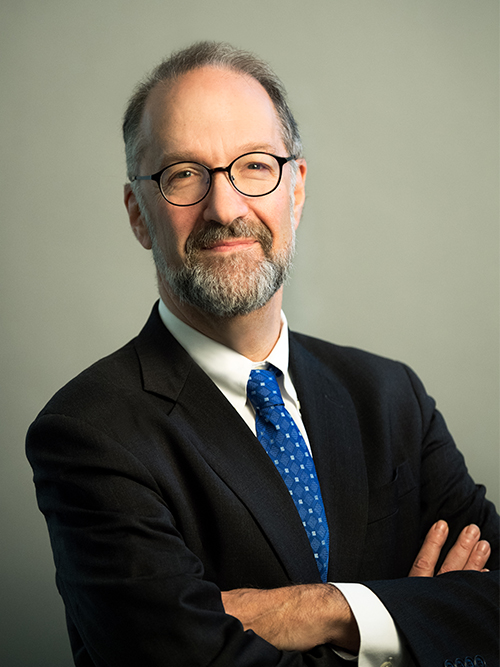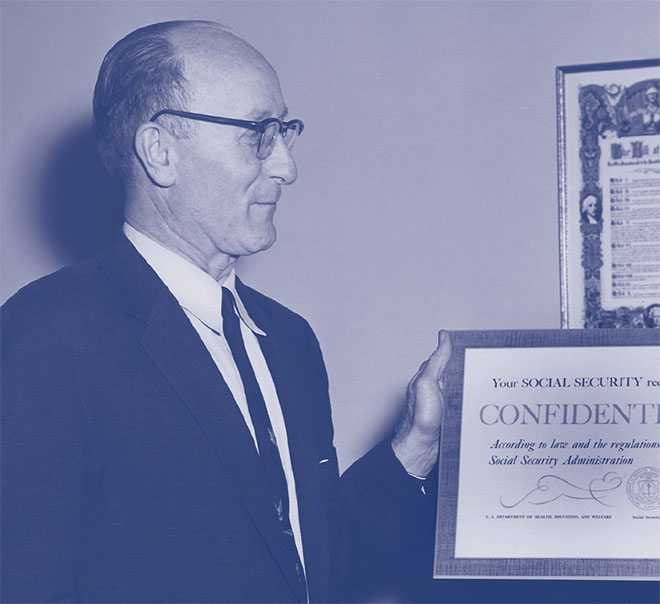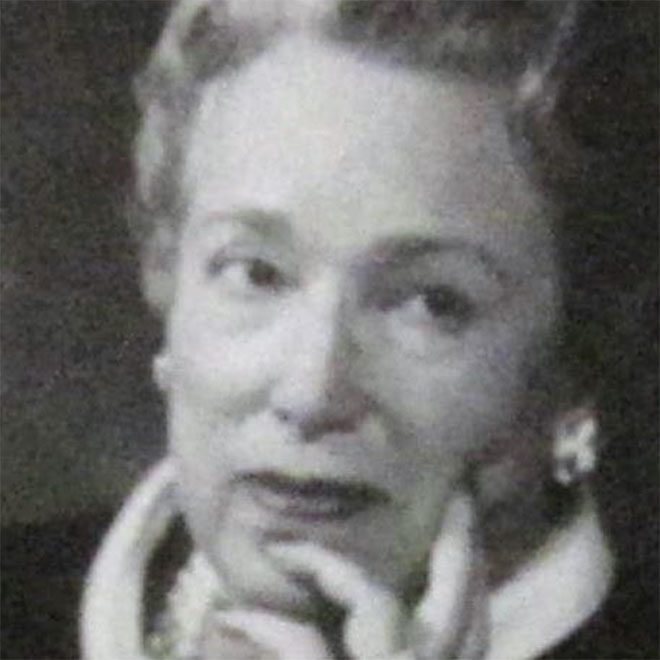By David Weil, Dean and Professor

In 2016, I was serving as President Obama’s administrator for the U.S. Department of Labor’s Wage and Hour Division when I was approached by a search firm seeking a new dean for the Heller School. At that moment, I had not given a lot of thought about whether to return to my prior academic appointment or seek new opportunities at the end of the administration, but in all candor, being a dean was not on my radar screen.
A cornerstone of my own career aspirations was (and continues to be) blending rigorous analytic research with applied social policy problems of consequence — in particular, I focus on problems that matter to working people. It is this blend of research and practice that motivated my academic work before I joined the Obama administration and guided me in my government post.
However, the more I learned about the unique academic programs and research activity of the Heller School, the more interested I became. In one small footprint, the school brings together a distinguished PhD program, six master’s programs, and 10 extremely active research centers and institutes. Intrigued, I threw my academic cap in the ring. In the course of multiple discussions with members of the community, I saw that Heller’s motto of “knowledge advancing social justice” was more than words: The school’s commitment to mission is reflected in the perspectives and activities of the faculty, students, researchers, alumni and staff. For that reason, I was both delighted and honored to be selected as the Heller School’s sixth dean in 2017.
This orientation, and the intellectual and social justice energy that underlies it, goes back to the school’s inception. It is what motivated Brandeis President Abe Sachar and Florence Heller, the philanthropist who endowed the school. It is what drew the school’s first dean, Charles Schottland, and every dean to follow. And, most importantly, it is what brings together the community of scholars, students and staff who have made good on Heller’s mission and legacy every day for the last 60 years.
But that legacy is neither stagnant nor simple. At 60 years, the Heller School faces major challenges:
- Sustaining a complex mix of PhD and master’s programs while also supporting a large number of research institutes and centers.
- Undertaking rigorous academic research befitting a major research university and striving to apply those insights to the most pressing social policy problems of the day.
- Bringing the appropriate mix of academic disciplines together under one roof to focus on those problems in meaningful ways.
- Recruiting a diverse student, staff and faculty community that is reflective of our social justice mission, and providing them with academic programs that tap students’ experience and fulfill their demands for relevance.
- Funding all of the above in a world where tuition revenue, research funding and donor support can move in sudden and unexpected directions.

In 1954, Abe Sachar and Florence Heller wrestled with similar questions in their correspondence about founding a school of “social welfare.” These same challenges underlay the five tasks that Dean Schottland shared with President Sachar after his first several months in office, and they have been center stage to the five deans who followed him — Arnold Gurin, Stuart Altman, Jack Shonkoff, Lisa Lynch and me. And they remain central to Heller’s next chapter.
These recurring challenges emanate from the lofty expectations that the school has for itself, epitomized in its motto. Although the methods by which the faculty, researchers and staff undertake that mission have changed to reflect the distinctive problems of the past six decades, the desire to impact deeply rooted social policy dilemmas has not. It is this desire to effect systematic social change that has attracted like-minded people to our doors for decades — and they show no signs of stopping.
President Sachar described Heller’s role in the world succinctly: “Our country needed ... a school, geared not for pedestrian social service, for the routine job of case work, but for the training of top leadership, for statesmanship, for imaginative social planning in a period where welfare programs affect the destinies of millions.” Ever since, Heller has grappled with balancing its role in training students to undertake social policy work with its role as a research institution that informs social policy. This has led the school to expand beyond its original goal of training PhD students to lead schools of social work to one with a world-renowned PhD program in social policy and six master’s degree programs. Heller’s research endeavors have also grown, from specializing in three social policy areas at its founding, to today’s full complement of 10 research institutes and centers as well as many ongoing collaborations with research enterprises across Brandeis and at universities around the world.

Florence Heller launched the school with a generous endowment, yet it quickly became clear to Dean Schottland that the combination of endowment earnings and PhD students’ tuition revenue would not financially sustain the school. So, like deans, faculty members and researchers to follow, Schottland quickly went out to secure government and foundation grants and contracts to support the school’s mission. Ever since, sustaining Heller’s mission has required securing externally funded research, particularly from the federal government. That necessity has created a distinctive entrepreneurial culture at Heller, linked to timely social problems people care about, but also vulnerable to political and economic cycles and risks borne by the school’s individual researchers.
Although founded with a focus on U.S. domestic social policy, from its earliest days, Heller also embraced an international focus for its work. PhD students were originally required to show mastery of two foreign languages and would be “expected to have knowledge of [their] specialty in at least one country outside of the United States.” It soon trained students who would assume leadership positions around the world. Today, Heller typically welcomes one-third of its students from over 60 countries. Though every program welcomes international students, many of them are drawn to the school’s newer master’s degree programs, which train students to face pressing problems in global health policy, conflict resolution and sustainable development.
Many of the social policy questions Heller researchers grapple with are rooted in disparities in treatment and outcomes — including inequities by race, gender, ethnicity, immigrant status, ability and other social identities. It is no accident that Heller students were deeply engaged in advocating for racial justice on Brandeis’ campus in the events of Ford Hall 1969 and Ford Hall 2015. Since its inception, Heller’s lofty ideals for social justice and equity were championed by giants of history — Eleanor Roosevelt was a founding member of the Board of Overseers, and the first graduating PhD class shared the podium with honorary degree recipient Thurgood Marshall — but as an institution, Heller still grapples with the immense responsibility to “walk the talk” in managing its own diversity and inclusiveness.
There is perhaps no more common debate at Heller than the struggle to define “social justice.” Throughout the school's history, these productive but difficult conversations have led to intellectual tensions: how to balance the demands of rigorous research and analysis with a normative aim of improving social outcomes. How to train students in dispassionate analysis while recognizing their desire to change the world. Today, there is still no simple consensus on how to strike that balance and weigh social good. But there is unanimity that the pursuit of truth in these questions remains central to what the school strives to do.
As we all live through this coronavirus pandemic and the associated economic crisis, the world of higher education faces new challenges. At Heller, we have gone to great lengths to respond creatively and compassionately as an institution of higher learning and a community of scholars in our teaching, research and engagement work. In historic moments like these, society expects the academy to provide insight and leadership in the students it trains and the knowledge it produces. The present crisis demands that Heller answers that call in all that we do.
The next chapter of the Heller School will be shaped by these global challenges and by the people who are drawn to our powerful mission. These leaders, scholars and practitioners will no doubt forge new responses to enduring issues, like social and economic disparities, as well as emerging ones we have yet to fully articulate. May Heller's path forward continue to speak to its founders’ desire to make the world a more just, peaceful and humane place for all.
